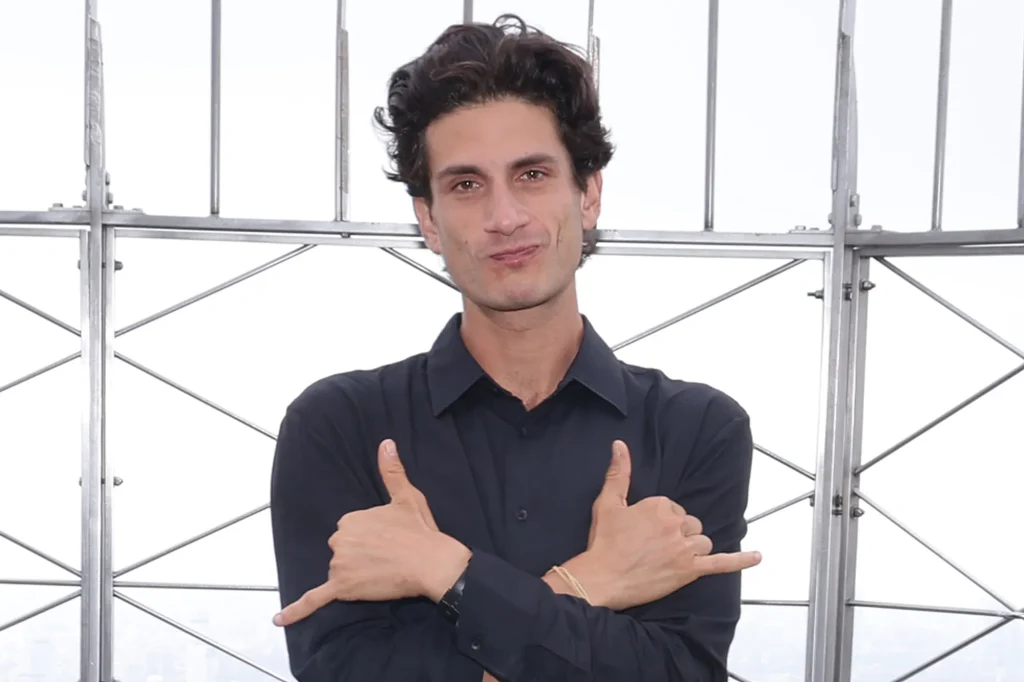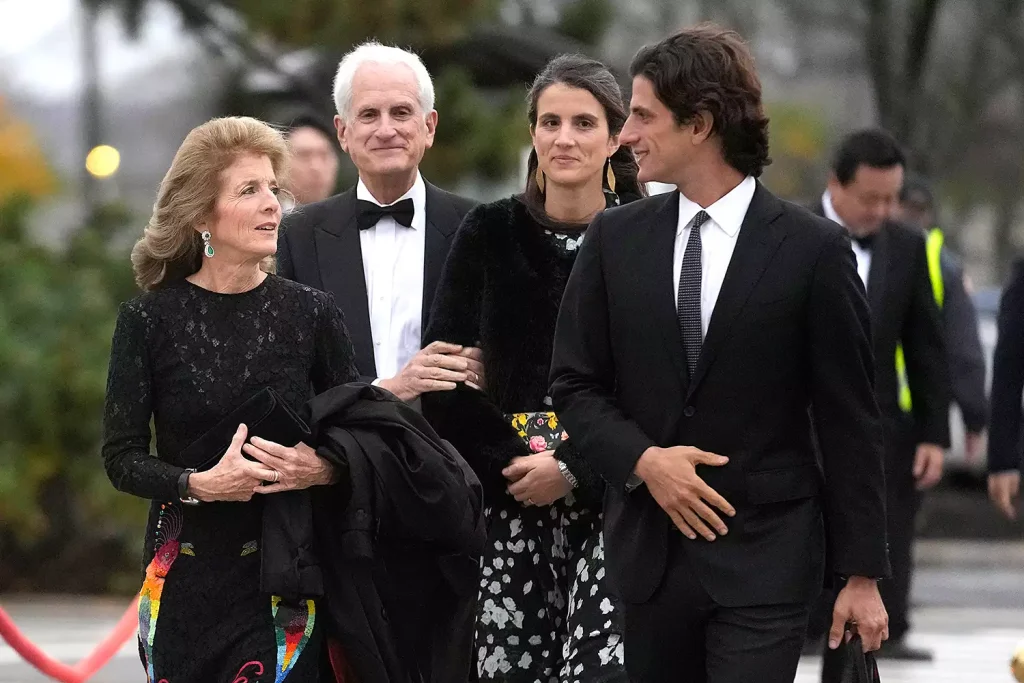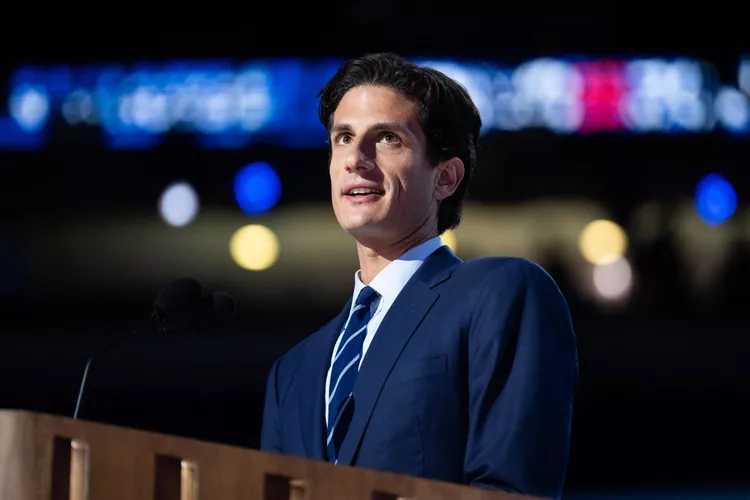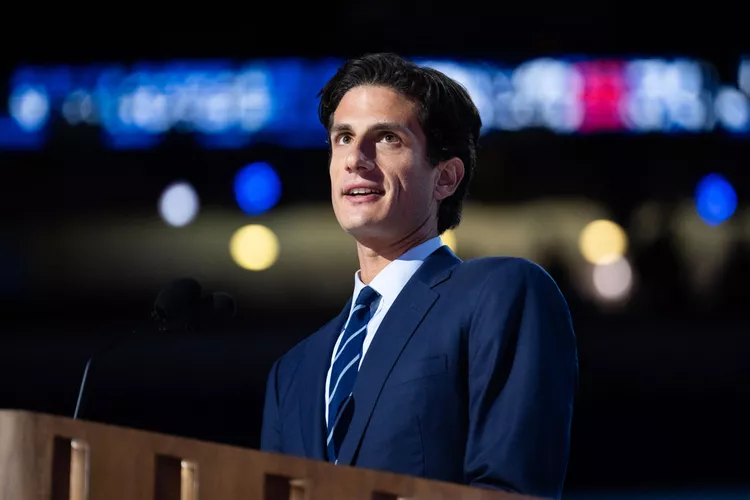From Camelot to Capitol Hill: Jack Schlossberg Launches 2026 Bid for Manhattan’s Congressional Seat – and the Kennedy Legacy Evolves
When Jack Schlossberg announced his candidacy for the U.S. House of Representatives in New York’s 12th Congressional District, the moment felt like a quiet turning point. For decades, the name “Kennedy” has evoked a legacy of public service, idealism, and Camelot-era optimism. Now, the only grandson of John F. Kennedy steps into the political ring himself, signaling that legacy may yet take a new form. On November 11, 2025, Schlossberg sent an email to supporters and appeared in an interview confirming his campaign to succeed long-time Representative Jerry Nadler, who is retiring after more than three decades in Congress.

At age 32, Schlossberg brings a combination of pedigree, intellect, and digital fluency. A Yale graduate who later completed a joint JD/MBA at Harvard, he passed the New York bar exam in 2023 and has written for several major publications. He also gained recognition for his thoughtful appearances at Democratic events and online advocacy around civic responsibility. Yet despite his impressive résumé, Schlossberg is entering an arena that is far from ceremonial — the Democratic primary for New York’s 12th District is expected to be highly competitive, with several prominent local figures already signaling their interest.
The 12th District is a powerhouse slice of Manhattan — encompassing the Upper West Side, Upper East Side, and Midtown — an area deeply blue, politically engaged, and home to some of the nation’s most influential voters. Jerry Nadler’s decision to retire has created a rare open seat, prompting a wave of hopefuls from across New York’s Democratic establishment. Names such as Micah Lasher, Alex Bores, and community organizer Liam Elkind have already been floated. But the arrival of a Kennedy heir instantly raises the profile — and intensity — of the race.

In his announcement, Schlossberg emphasized the need for new energy and vision. “This district deserves a representative who can harness the creativity, energy, and drive of this community and turn that into political power in Washington,” he said. He described his candidacy as a bridge between generations — someone young enough to speak to the future, yet grounded in a tradition of public service that has defined his family for decades. “There’s nothing our party can’t do to tackle the challenges we face — from affordability to climate change to rebuilding trust in democracy. But without holding Congress, there’s little we can achieve,” he added.
Still, Schlossberg’s decision to step forward carries added symbolic weight. The Kennedy family’s influence on American politics has endured for generations, but it has also splintered at times. In recent years, Robert F. Kennedy Jr.’s controversial positions on vaccines and his independent presidential run drew headlines — and criticism — from within his own family. Schlossberg, who has been outspoken in his disagreement with his cousin, made clear that his entry into politics represents a return to the family’s core ideals: science, progress, civil rights, and unity. In his own words, his campaign is not about “reclaiming” a name, but about “living up to its meaning.”
Observers note that Schlossberg’s timing may be strategic. Democrats are eager to retake control of the House in the 2026 midterms, and New York is viewed as one of the key battlegrounds that could decide the balance of power. His candidacy, with its mix of celebrity and substance, offers the party a youthful face and a symbolic counterweight to cynicism about dynastic politics. His team is reportedly focused on grassroots mobilization, fundraising transparency, and digital outreach — areas where Schlossberg’s background could provide an edge.

However, the Kennedy name remains both a blessing and a challenge. Voters may see him as a figure of inspiration, yet also question whether his fame overshadows his readiness for legislative responsibility. In Manhattan’s hyperlocal political culture, where community issues like housing, transportation, and environmental sustainability dominate, Schlossberg will need to demonstrate that he understands and prioritizes the day-to-day concerns of residents. His campaign will likely have to prove that he’s not simply a symbol of legacy but a candidate with modern solutions.
Those close to him describe Schlossberg as deeply committed, thoughtful, and surprisingly low-key for someone raised under the weight of such a name. Friends recall his disciplined approach to both law and policy, describing him as more analytical than charismatic — a contrast to some of his more flamboyant relatives. His recent years working quietly in law and public service were, by many accounts, a deliberate preparation for this step. People who have worked alongside him say he’s not seeking fame but purpose, a distinction he’s expected to lean into as he connects with voters wary of political theatrics.
In the coming months, the campaign trail will test his stamina and political instincts. He will need to court endorsements from influential Democratic leaders, navigate the city’s complex donor landscape, and establish a clear policy platform that sets him apart from veteran rivals. Insiders say his campaign strategy will likely focus on youth engagement, digital town halls, and community forums — all aimed at projecting accessibility and authenticity.
There’s also a larger narrative unfolding. For decades, Americans have wondered whether another Kennedy would enter the political stage. Caroline Kennedy, Schlossberg’s mother and former U.S. ambassador to Japan and Australia, has long been viewed as the family’s quiet stateswoman. Her son’s entrance into politics feels like a natural continuation of that path. But Jack Schlossberg represents a distinctly modern version of Camelot — one shaped not by nostalgia, but by the digital age, global uncertainty, and renewed polarization.
To many observers, his candidacy reflects a broader cultural yearning for leadership that blends idealism with intellect. His speeches often reference science, education, and civic participation rather than lofty rhetoric. Supporters say that’s part of what makes him different — and what may make him successful in a city that values results over image. Critics, however, argue that being a Kennedy in Manhattan still carries the perception of privilege, and that he must prove his empathy and understanding of working-class struggles.
Whether Schlossberg can navigate those perceptions will determine how his campaign unfolds. But there’s little question that his entry has reignited interest in the Kennedy legacy. For older generations, it stirs memories of John and Robert; for younger ones, it represents the possibility that idealism can still exist in politics. His campaign’s early videos and statements focus heavily on optimism, civic duty, and the belief that public service remains one of the highest callings.
As the race progresses, the question will shift from who Jack Schlossberg is — to what he stands for. His success or failure will not only shape his career but will also influence how a storied name fits into the landscape of 21st-century American politics. The Kennedy torch, long seen as flickering, may yet find new light through him — or prove that history, even when it echoes, does so in different tones.


